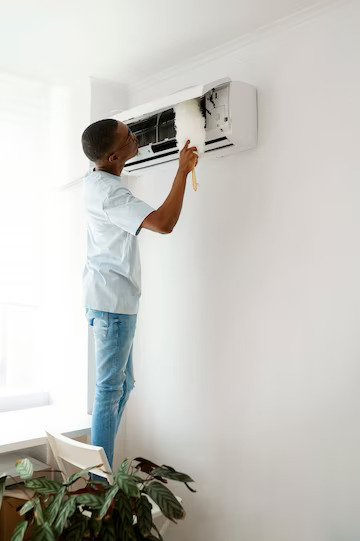
Singapore is known for its high-rise buildings, modern infrastructure, and fast-growing technology that relies heavily on electricity to power both homes and businesses. However, along with the convenience of having electricity come many electrical problems. These problems can range from being a small inconvenience to becoming a major safety concern. The following are the most common electrical problems found in Singaporean households and establishments, which may be helpful for you to take preventive measures or know when it is time to call for professional help.
Circuit breakers are important parts of any electrical system — they’re designed to cut off the flow of electricity when there’s an overload, short circuit, or ground fault. One of the most common electrical problems faced in Singapore is frequent tripping of circuit breakers; unlike a single trip that may indicate only an isolated overload, repeated tripping points at a more serious underlying issue that requires attention.
The reason behind a tripped breaker could be too many devices drawing power from one circuit, leading to overheating, which could cause fire, especially if it’s an old building where wiring may not handle the increased demand brought about by modern appliances and gadgets. Short circuits also tend to trip breakers; this happens when a hot wire touches another hot wire or neutral wire, thereby creating an abnormal amount of current flow that can’t be handled by the circuit. Ground faults where the live wire comes into contact with the grounded part of the system can also frequently cause trips.
If your circuit breaker trips frequently, it is crucial to establish what causes it and fix such a problem because sometimes all you need to do is just redistribute the electric load while on other occasions upgrading wires might be necessary so as replacing faulty breakers themselves too could also help solve this issue.
Electrical surges refer to sudden increases in voltage that happen over very short periods of time. These are a common occurrence in Singapore too. Such surges can be brought about by external factors such as lightning strikes, damaged power lines among others or internal ones like faulty appliances and bad wiring. Although they last for a fraction of a second, these voltage spikes can cause serious harm to electrical devices by reducing their lifespan and efficiency significantly.
On the other extreme, there exist moments when there is an abrupt reduction in voltage known as electrical dips or sags. A good example is when an air conditioner or refrigerator is switched on and it momentarily draws more electricity than what has been supplied thus causing lights to flicker or devices to lose power briefly.
Both surges and dips could point to deeper problems within your electricity system. This, therefore, means that you should use surge protectors for all your valuable equipment so that even if there’s a dip; their functionality is not affected but ensure wiring standards are met throughout the house since these issues may recur then it might be necessary for someone with expertise on electric matters to inspect the entire system if need be.
Buzzing or humming sounds coming from outlets, switches, or appliances are generally indicative of trouble somewhere along the line, mostly caused by loose connections, overloads, or faulty components. Where there’s electricity passing through without resistance, no noise should be heard; hence, any sound indicates the presence of resistance somewhere, which generates heat, leading to overheating.
Loose links in outlets or switches can create openings that force electricity to jump, causing a buzzing sound. Overloaded circuits, where too much power is being drawn by devices, could also make wires heat up and produce a hum. If you hear these sounds, it’s crucial to shut off power for that area and call an electrician immediately.
Flickering or dimming lights might be more than just inconvenient; they commonly indicate an underlying electrical problem. Common causes include loose wiring, overloaded circuits, and problems with the light switch itself.
Intermittent contact from loose connections in wiring can cause lights to flicker. Too many lights or appliances drawing power on one circuit can cause dimming as well as flickering. Also, if a particular light switch is faulty or old, it may not properly regulate electricity flow to the fixture.
If your lights frequently flicker or dim throughout the house –– especially when other devices are turned on –– have your electrical system inspected as soon as possible. This symptom sometimes indicates that an impending circuit failure will occur soon, which could result in dangerous situations if not addressed promptly.
Outlets that feel warm or hot to the touch should be taken seriously. This usually means that an outlet is taking more current than it can handle, which leads to overheating and potentially starting fires; also caused by faulty wiring or loose connections.
A warm outlet is a sign that there are too many cords plugged into one socket at once — overloading them will cause this issue every time! You need an electrician if you notice any of these signs: stop using them immediately!
Exposed wires pose a great danger because they often occur due to pests damaging insulation material around cables during their activities, such as chewing through them; poor installation practices where conductors are left unprotected against mechanical damage by sharp objects like nails driven into walls near where they run along floors. This puts people at risk of being electrocuted if touched accidentally.
If you find any exposed wire anywhere in your home, you must deal with this situation urgently. The first step should involve switching off the electricity supply and going into those areas affected before calling experts who will fix or replace damaged wires accordingly, knowing very well how dangerous such situations can become if not handled professionally.
One of the most dangerous electrical problems that you may face is the smell of burning or visible smoke coming from an outlet, switch, or appliance. Normally, this means that wires are too hot which can easily result in a fire outbreak. If there is a smokey smell or you see smoke then turn off power immediately and if necessary evacuate the building before calling for help from emergency services as well as an electrician.
Burning odors or smoke are direct signs telling us that our electrical system has reached a critical condition and such indicators should never be ignored because they could be devastating.
In Singapore, electrical problems are not uncommon but these issues need not necessarily have severe consequences if dealt with promptly and correctly. Frequent check-ups, appropriate usage of power equipment, and timely fixing are some ways through which one can prevent the escalation of these challenges.
If you’re looking for professional electrical services in Singapore then it’s important that you choose a reputable provider who has been around for long. Magic Build offers complete solutions when it comes to electricity, thereby ensuring safe operations within your residential area at all times. Whether routine maintenance tasks need to be done, repairs carried out, or even an entire electrical upgrade conducted, our company will deliver top-notch service tailored just for you.
Feel free to contact us for your queries.
Read to know: How To Pick A Good Electrical Handyman
684bd67668749.jpg)


Subscribe to our newsletter to get inbox notifications